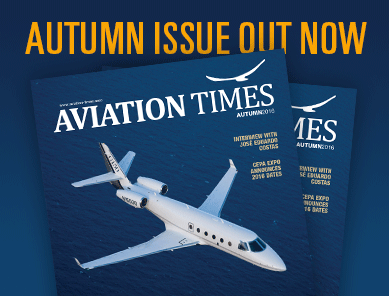Pilot Jobs in Asia: Thanks, but No Thanks
 The Russian flag carrier Aeroflot recently announced the welcoming of its first foreign pilot within its ranks thus marking the opening of a new yet small market for professionals with salaries resembling the ones in Asia. However, while the Russian carrier had 10 candidates to a single place competition with over 800 applications received, it seems that most operators from other booming markets are losing their luck when it comes to recruiting experienced flight crews, as European pilots are becoming increasingly reluctant to move outside their home region.
The Russian flag carrier Aeroflot recently announced the welcoming of its first foreign pilot within its ranks thus marking the opening of a new yet small market for professionals with salaries resembling the ones in Asia. However, while the Russian carrier had 10 candidates to a single place competition with over 800 applications received, it seems that most operators from other booming markets are losing their luck when it comes to recruiting experienced flight crews, as European pilots are becoming increasingly reluctant to move outside their home region.
”Despair – that‘s how we may now call the general mood of the European job market back in 2008-2012. Budget cut-offs, layoffs, flight hour reductions, and, eventually, employer bankruptcies – many European pilots had to suffer through at least one of these often subsequent stages. With this in mind, there’s no wonder that many of them had decided to seek better opportunities outside the troubled region and move to the Middle East, Asia, or Asia Pacific,” relates the crisis market environment Skaiste Knyzaite, the CEO of AviationCV.com. „But nowadays the market is becoming more and more stable, and it seems that pilots are starting to feel increasingly confident in their future. Though some might be mislead by the strikes.”
The ongoing strikes of the Air France pilots’ union (as well as the might-have-been strike of the Lufthansa crews) were the clear indicators of the existing disagreement between the employer and its employees. However, the reasons for the strikes were rather linked to natural market processes (rising pressure and competition from low-costers and carriers from the Middle East) than to a major financial downturn. In other words, carriers are currently eager to decrease their costs along with further fleet expansion in contrast to costs and fleet optimisation during the crisis.
Moreover, though the strikes will certainly affect the September figures, the overall European air travel market keeps regaining its confidence. According to the latest ACI Europe report for July 2014, the year-on-year passenger air traffic has grown by another 4% in the EU-airports and by over 6% in other airports within the continent. Even the historically weak segment of cargo traffic has shown an increase of 3%.
”For already some time now we have been observing a certain trend suggesting that European pilots are no longer as eager to move to the emerging markets for a higher salary as they used to be. Since many European airlines are once again on the manufacturers’ order lists – take at least the recent Farnborough airshow – there is ground to expect new opportunities for the comfort of living and working back at home. Naturally, this might be one of the reasons behind some pilots choosing to stay in their current positions with current qualification rather than making a career jump with an Asian employer,“ says S. Knyzaite.
At the same time, many pilots might still be concerned about the influence that the low-cost business model is having on their salary rates, particularly if an airline employs specialists from outside the region. According to Skaiste Knyzaite, it is hard to overestimate the influence of low-costers on the development of the modern air transportation market. During the industry downturn when the overall traffic declined by 6%, no-frill airlines were the only ones to report a positive growth (18%), states Eurocontrol. Moreover, the economic crisis showed that legacy carriers simply cannot afford to keep operating in a traditional way, and they must adopt at least some of the low-costers’ business principles.
„Actually, the business models of legacy and low-cost carriers have been approaching each other for already a decade if not longer now. And it’s not only about e-tickets, extra fees, etc. Sooner or later, the personnel also face certain changes. But contrary to popular belief, low-cost doesn‘t always mean low-paid. The average pilot salary in major low-cost airlines corresponds to the market-wide figures with approx. 9-10 thousand USD/month for experienced Captains and 70-80% of that for First Officers. Certainly, smaller low-costers will pay less to their pilots, but so will small legacy and regional airlines,” explains Skaiste Knyzaite, the CEO of AviationCV.com. “In other words, the money are not that bad. In addition to the possibility of staying close to home, the significantly lower risks associated with the potentially sudden bankruptcy of one’s employer are keeping an increasing number of European pilots from seeking jobs in the international job search market. However, with the summer season to end, many pilots (particularly those working for charter carriers) will have their season contracts terminated. What’s next? Why not consider a contract outside Europe where the peak season is only starting. After all, being a pilot means being a man of the world.”
Source: AviationCV
Publishing or copying the content of AVIATION Times without a written electronic permission is strictly forbidden. If you have any information, tips, videos, photos or your press releases for us contact us at news@aviation-times.aero.
AVIATION TIMES © Copyright 2012 - 2026







